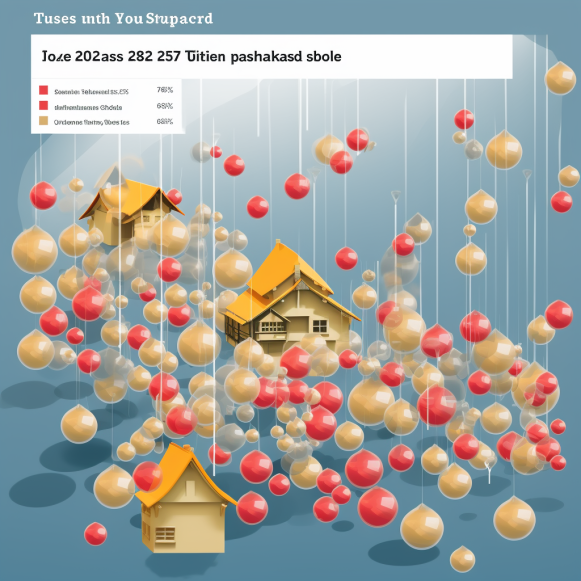UBS says Zurich and Tokyo are the cities most at risk of being in a housing bubble. Here are the other 15 markets where they warn home prices are overvalued — and the 6 most vulnerable to declines.

- UBS says home prices in Tokyo and Zurich are in bubble territory.
- The bank released its Global Real Estate Bubble Index on September 20.
- Two US cities are considered overvalued: Miami and Los Angeles.
Rising interest rates have hurt housing markets all over the world, just as they have in the United States.
The list of central banks that have raised interest rates in recent years is lengthy: the Federal Reserve, the European Central Bank, the Reserve Bank of India, the Bank of England, the Reserve Bank of Australia, the Bank of Korea, the Central Bank of Brazil, the Bank of Canada, and others have all done so to combat inflation.
This is causing mortgage rates to rise after years of low-interest-rate policies, squeezing affordability and driving down home prices in some metropolitan areas.
“On average across all cities, inflation-adjusted home prices have dropped the most since the global financial crisis in 2008,” said Claudio Saputelli and Matthias Holzhey of UBS in a client note dated September 20. Saputelli is UBS’s head of Swiss and global real estate, and Holzhey is the bank’s senior real-estate economist.
Even as the global onslaught of rate hikes appears to be winding down, Saputelli and Holzhey warn that home prices in a number of cities are still at risk of falling.
The pair released UBS’s most recent reading of its Global Real Estate Bubble Index in the note. For each city, the index takes into account five variables: home price-to-income ratio, home price-to-rent ratio, the ratio of a city’s home prices to its country’s overall home prices, change in construction-to-GDP, and change in mortgage rates-to-GDP.
Zurich and Tokyo are at the top of the list and are considered to be in “bubble risk” territory because they are at least 1.5 standard deviations above their index norm (Zurich at 1.71 and Tokyo at 1.65). Each city has at least three of the five variables that are significantly above their historical norms.
Another 15 cities are considered overvalued, with overall index scores that are 0.5-1.5 standard deviations above average. They are as follows, with their overall standard deviation scores:
- Miami (1.38)
- Munich (1.35)
- Frankfurt (1.27)
- Hong Kong (1.24)
- Toronto (1.21)
- Geneva (1.13)
- Los Angeles (1.03)
- London (0.98)
- Tel Aviv (0.93)
- Vancouver (0.81)
- Amsterdam (0.80)
- Stockholm (0.74)
- Paris (0.73)
- Sydney (0.67)
While the 17 cities listed above are either overvalued or in the bubble zone, putting them at risk of price declines, Saputelli and Holzhey argue that some are more vulnerable to ongoing price drops than others. Tel Aviv, Munich, Hong Kong, Zurich, Geneva, and Frankfurt are among the cities most at risk right now.
This is because prices relative to rent values have become overly stretched, making them less appealing to investors. Here’s how long it takes in each city to pay off a mortgage.
“Such high multiples come from an excessive appreciation of housing prices in the wake of previously low interest rates,” said Saputelli and Holzhey. “House prices in all these cities remain vulnerable to corrections should interest rates remain elevated for longer or continue to rise further.”
Rent control laws that keep rents low in some markets, such as Munich, Tel Aviv, and Zurich, may explain this, they say, but buyers may also be speculating on future appreciation.
“Investors expect to be compensated for very low rental yields with capital gains,” the two men stated. “If these hopes do not materialize and expectations deteriorate, homeowners in markets with high price-to-rent multiples are likely to suffer significant capital losses.”






